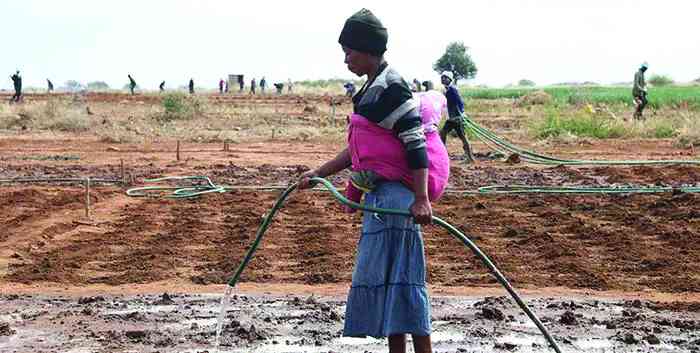
In an era of unprecedented global interconnectedness, African leaders traverse the world, engaging with international forums, signing treaties, and observing developmental models. Yet, the translation of these experiences into transformative policies for their nations remains inconsistent. Zimbabwe, a country grappling with systemic gender inequality, epitomises this paradox.
Despite its leaders’ exposure to global best practices in feminist development, from Scandinavia’s gender-equal governance to Rwanda’s post-conflict women-centric reforms, Zimbabwe’s policies although very progressive remain stagnant, failing to uplift women.
Let us interrogate why Zimbabwean leaders, despite their global engagements, have not contextualised feminist development to empower women, perpetuating cycles of marginalisation.
Globalisation offers leaders access to international funding, gender-sensitive policy frameworks, and cross-cultural exchanges.
Institutions such as UN Women and the African Union’s Gender Equality Strategy provide roadmaps for advancing women’s rights, while donor agencies prioritise funding for girls’ education, maternal health, and economic empowerment.
Nordic countries demonstrate how gender quotas in politics and parental leave policies dismantle patriarchal structures. Rwanda, post-genocide, leveraged global insights to achieve 61% female parliamentary representation, the highest globally. Yet Zimbabwe’s leadership, despite participating in forums such as the UN Commission on the Status of Women, has not internalised these lessons.
This disconnect raises questions: Is there a lack of political will, a dismissal of feminism as “Western,” or a failure to adapt models to local contexts? Zimbabwe’s gender disparities are rooted in colonial and patriarchal histories.
While the 2013 Constitution enshrines gender equality, implementation lags. Women constitute 52% of the population but hold only 31% of parliamentary seats, falling short of the 50% quota. Maternal mortality remains high at 462 deaths per 100 000 live births, and 34% of girls marry before 18.
- Masvingo turns down fire tender deal
- Byo author eyes SA award
- WhaWha triumphs in the slugfest of wardens
- 2 DJs murdered over woman
Keep Reading
Economic exclusion persists, with women dominating informal sectors but lacking access to credit and land ownership. Cultural norms frame gender roles rigidly, with practices such as child marriage and lobola (bride price) reinforcing women’s subjugation. Many women’s human rights organisations across Zimbabwe advocate for change, but their impact is stifled by limited state support.
President Emmerson Mnangagwa’s government pays lip service to gender equality, citing the National Development Strategy’s inclusion of women.
Economic structural adjustment programmes and austerity measures, often shaped by global financial institutions and of late the Donald Trump funding cuts, disproportionately affect women.
Cuts to healthcare and education, critical for women’s empowerment, are implemented without gender-responsive safeguards.
Politically, despite constitutional quotas, the ruling Zanu PF party resists ceding power to women, relegating them to token roles.
Female politicians face harassment, exemplified by the 2020 arrest of opposition MP Joana Mamombe and the abuse continues. Legally, statutes against domestic violence and marital rape lack enforcement, while customary law, prioritising traditional male authority, overrides statutory protections.
Critics argue that Zimbabwe’s leaders, clinging to patriarchal and authoritarian tendencies, view feminist development as a threat to their power. Globalisation’s lessons are either cherry-picked for performative gestures, such as signing the Sadc Gender Protocol, or dismissed as cultural imperialism.
This resistance ignores homegrown feminist traditions, such as the pre-colonial prominence of spirit mediums such as Nehanda, who led anti-colonial resistance. A mere statue will and cannot be a true honouring of the legacy of such a formidable force of a woman to reckon with.
Contextualising feminist development requires addressing Zimbabwe’s unique challenges through global-local synergy. Economically, the state must invest in women’s cooperatives, land redistribution, and access to digital finance, drawing inspiration from Botswana’s Women’s Economic Empowerment Programme, supported by UNDP. Educationally, eliminating tuition fees for girls, integrating comprehensive sexuality education, and expanding rural clinics could mirror South Africa’s SheConquers campaign, which reduced teen pregnancies.
Politically, enforcing quotas, funding female candidates, and criminalising political violence are essential steps, as demonstrated by Senegal’s 2010 Gender Parity Law mandating 50% female representation in elected bodies. Legally, aligning customary law with constitutional equality, training gender-sensitive judges, and establishing fast-track courts for gender-based violence (GBV) would bridge the gap between legislation and practice.
Civil society initiatives such as the #SheVotesZWElection campaign demonstrate grassroots potential, but without state partnership, their reach remains limited. Zimbabwe’s inertia contrasts sharply with regional peers.
Rwanda’s post-genocide focus on women’s leadership catalysed national healing and economic growth. Namibia’s universal maternity protection and Malawi’s criminalisation of child marriage show progressive policy alignment with global standards.
These examples refute the myth that feminism is “unAfrican,” highlighting its transformative potential when leaders commit to inclusive governance. Zimbabwe’s reluctance to adopt similar measures underscores a deeper issue: the conflation of cultural preservation with the suppression of women’s autonomy. Yet, as Kenyan activist Njoki Njehu notes, “African feminism is not an import, it is a reclamation.”
Zimbabwe’s leaders cannot plead ignorance.
Globalisation has furnished them with tools to advance feminist development, yet choices remain rooted in political expediency.
The result is a nation where women’s potential remains untapped, stifling national progress.
The Mnangagwa administration’s failure to prioritise gender-responsive budgeting, enforce constitutional quotas relevant to the current cotext, or dismantle discriminatory legal systems reflects a lack of political courage.
Until the day Zimbabwe prioritises women’s agency over patronage, the promise of globalisation will remain unfulfilled. As activist Everjoice Win argues, “Women’s rights are not Western, they are human.” Zimbabwe’s women are not asking for a cultural overhaul, or maybe we are, but for the freedom to thrive within their own society.
It is time leaders heed this truth, transforming global lessons into local liberation. Until then, let us keep spreading positivity (#spreadpositivity). We were here, becoming better, making our mark, and leaving our footprint as we make the world a better place!
- Chirenje writes in her capacity as a citizen of Zimbabwe. Follow her on social media for more Lifezone with Grace conversations on Twitter: @graceruvimbo; Facebook: Grace Ruvimbo Chirenje; Instagram: @graceruvimbo











